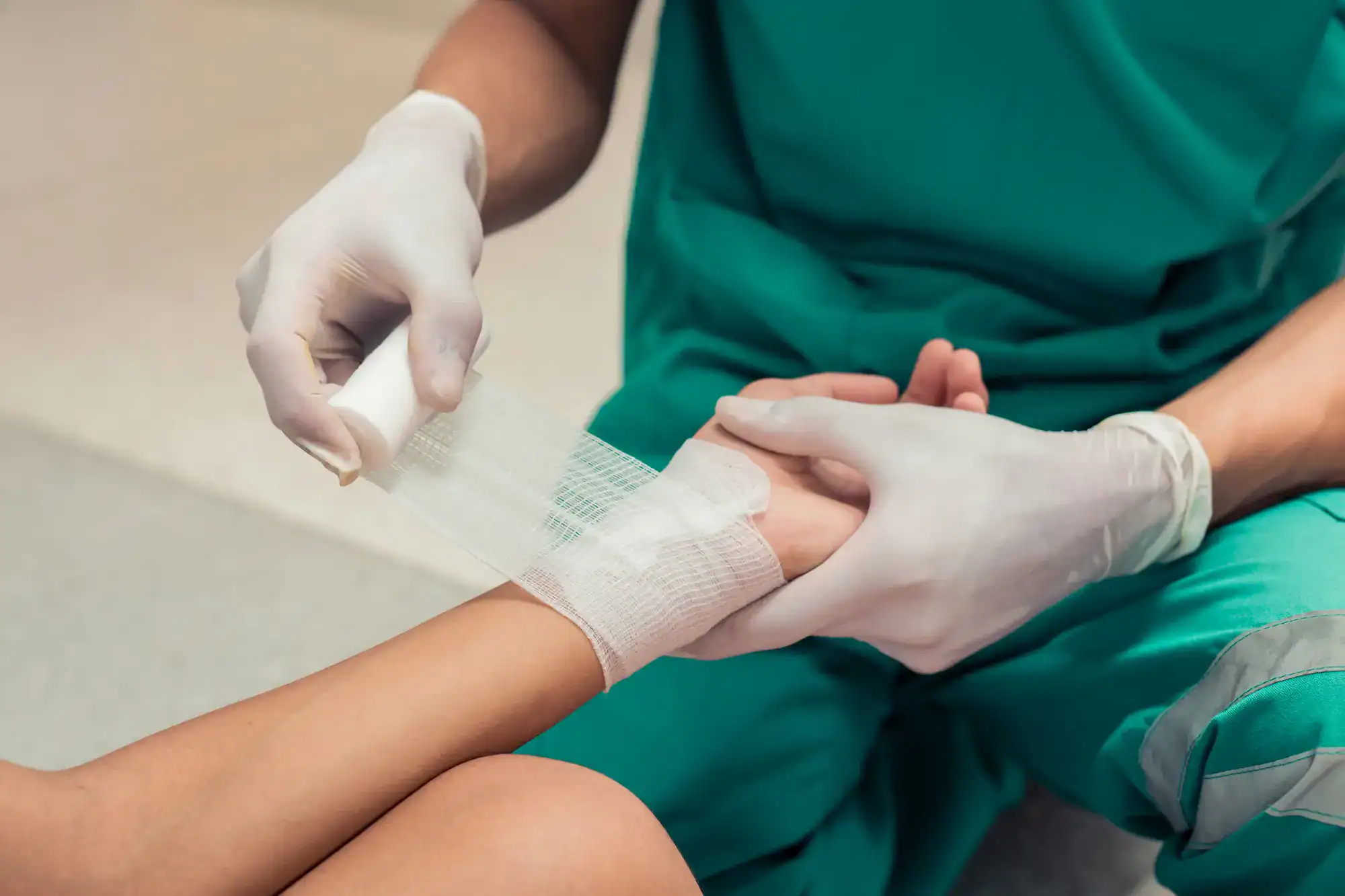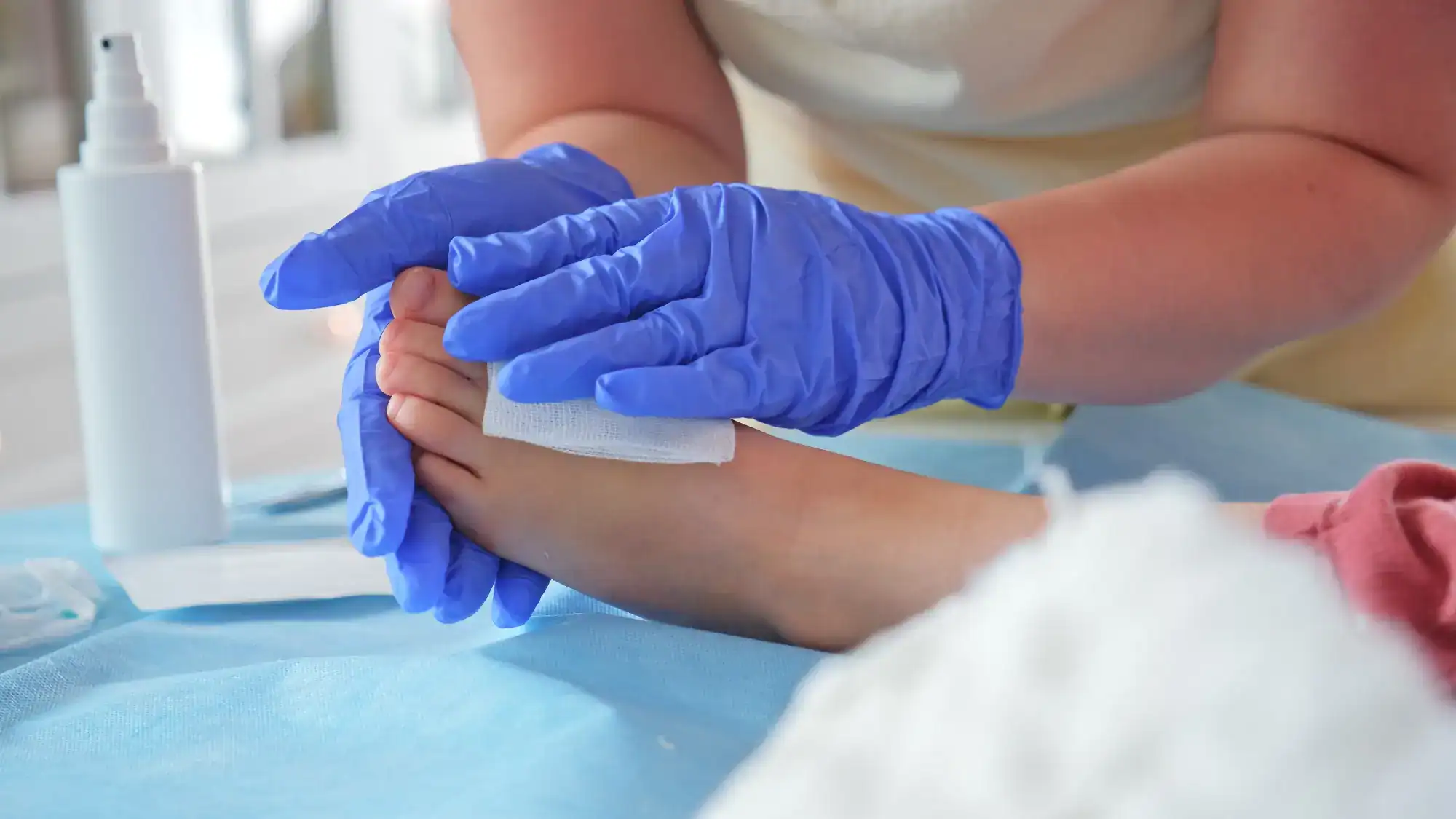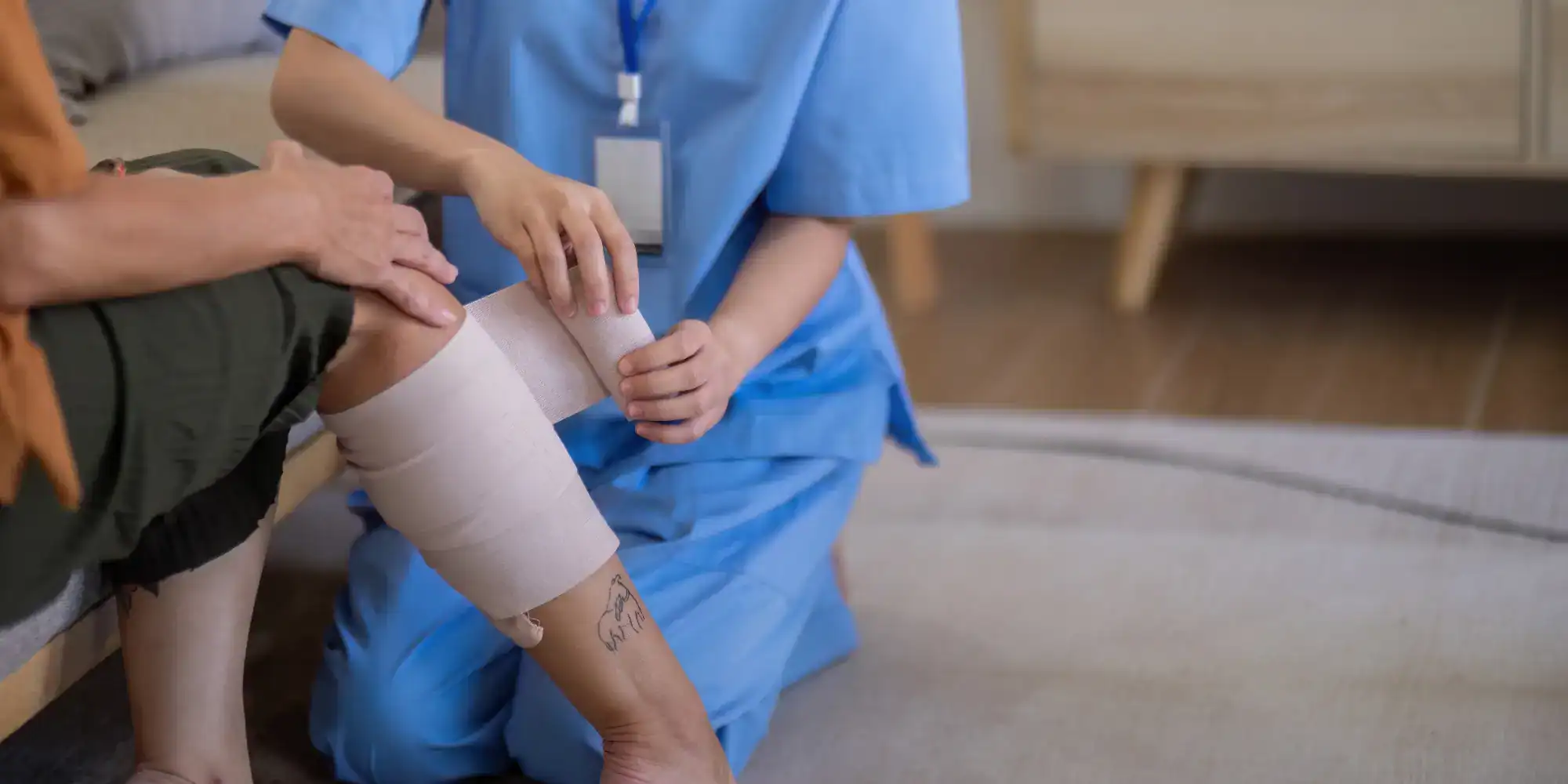Advanced wound treatments that work when traditional methods fail, right here in Saint Peter.

See What Our Customers Think

You’ve been dealing with this wound for months. Maybe it’s a diabetic ulcer that keeps coming back, or a surgical site that just won’t close properly. You’ve tried the standard treatments, followed all the instructions, and you’re still changing dressings every day.
Here’s what changes when you get the right wound care. The constant pain starts backing off within the first few weeks. You’re not waking up to check if the bandage is soaked through. Your infection risk drops significantly because the wound is actually closing, not just maintaining.
Most importantly, you stop living in fear of what happens if this doesn’t heal. For diabetics especially, that fear of amputation becomes a distant worry instead of a daily anxiety. You get back to walking without wincing, sleeping without positioning around the wound, and planning your day around activities instead of dressing changes.
At MedXclusive, we focus exclusively on wounds that need more than basic care. While your primary doctor handles everything from colds to checkups, we spend our days on the complex cases – the diabetic foot ulcers, the post-surgical complications, the chronic wounds that have stumped other providers.
We’ve been serving Saint Peter and the surrounding area with specialized wound treatments that most general practices simply don’t offer. Our approach combines proven medical protocols with the latest wound healing technologies, because we know you need results, not just another appointment.

Your first visit involves a complete wound assessment – not just a quick look, but measurements, photos, and testing to understand exactly why this wound isn’t healing. We check your circulation, test for infection, and identify any underlying factors that are working against you.
From there, we create a treatment plan that’s specific to your wound type and your body’s needs. This might include advanced dressings, specialized cleaning techniques, or newer therapies like negative pressure wound therapy. We’re not guessing – we’re using evidence-based treatments that have proven results for wounds like yours.
You’ll come in for regular monitoring appointments where we track your progress with actual measurements and photos. This isn’t subjective – we can show you exactly how much your wound has improved week by week. Most patients start seeing real progress within the first month, with complete healing typically happening faster than they experienced with previous treatments.

Ready to get started?
Your wound care includes comprehensive assessment using advanced diagnostic tools that most clinics don’t have. We perform vascular studies to check your blood flow, bacterial cultures to identify specific infections, and detailed wound mapping to track healing progress objectively.
Treatment options include advanced wound dressings that promote faster healing, debridement procedures to remove dead tissue that’s preventing closure, and specialized therapies like negative pressure wound therapy for complex cases. For diabetic patients, we provide specific foot care protocols and work closely with your endocrinologist to optimize healing conditions.
You also get education on proper wound care at home, including how to recognize signs of infection or complications early. We coordinate with your other doctors to ensure your diabetes management, circulation issues, or other health conditions aren’t working against your wound healing. Most insurance plans cover specialized wound care when medically necessary.
